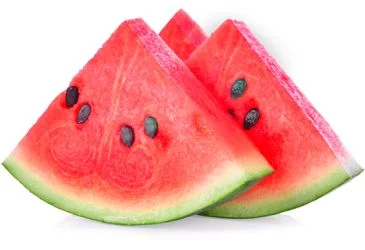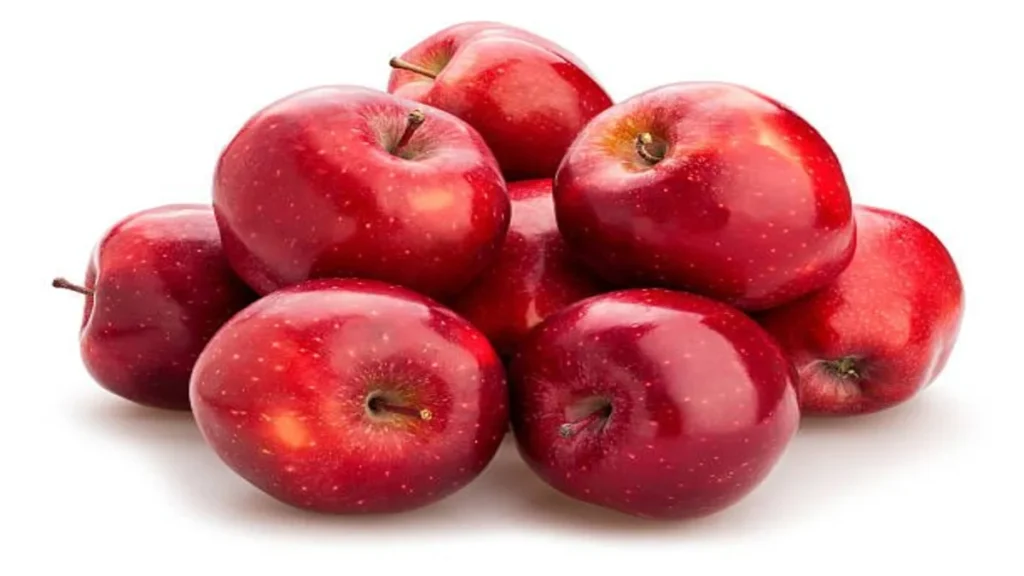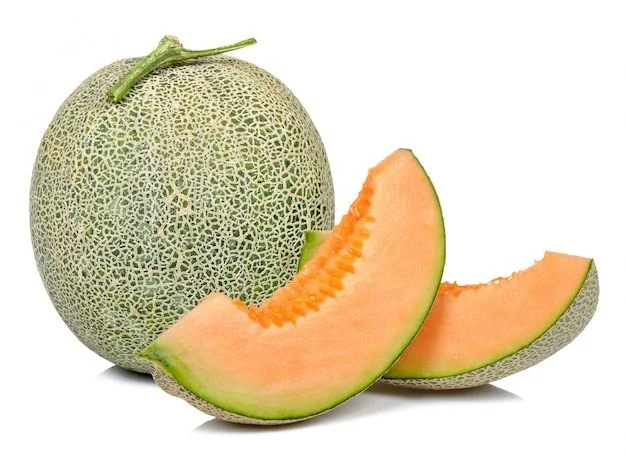Are you confused about whether is fruit good or bad for you? Find out the truth about the nutritional benefits of fruit in this informative article!
Fruit is packed with essential vitamins, minerals, and fiber that are important for overall health. However, it also contains natural sugars, which can be a concern for those looking to manage their sugar intake. So, what is the truth about whether fruit is good or bad for you?
Table of Contents
Is fruit good or bad for you?
Fruits do not contain unhealthy sugar as often believed
Much research indicates that consuming too much-added sugar can be detrimental.
This covers regular sugar (sucrose) and high fructose corn syrup, each containing roughly equal parts glucose and fructose. Excessive intake of fructose, especially, can adversely impact your metabolic well-being.
Many individuals currently think that if added sugars can be harmful, fruits containing fructose must also pose risks.
This notion is incorrect. Fructose can be harmful in high quantities, but it’s hard to consume excessive levels of fructose from fruit alone.
Generally, the sugar content in fruit is considered safe for consumption by most individuals.
Chewing and digesting fruits take time, contributing to their health advantages
Eating whole fruit makes it nearly impossible to ingest excessive fructose which could be harmful.
Fruits, rich in fiber and water, offer considerable resistance when chewed.
Consequently, consuming most fruits takes time for digestion, allowing the liver to process fructose gradually.
Fiber not only helps regulate your eating pace but also provides numerous advantages. Soluble fiber, commonly present in select whole foods like fruits, can lower cholesterol levels, support sugar metabolism, and promote a sensation of fullness.
For those aiming to lose weight, adding extra fiber to your diet could help curb hunger and support your weight loss journey, according to certain studies.
Fruit, rich in fiber, is quite satisfying. When craving a snack, indulging in a large Golden Delicious apple can leave you feeling content, as it boasts 2 grams of fiber and 22 grams of sugar, including 13 grams of fructose.
Contrast that with a 16-ounce (473-mL) soda can, having 0 grams of fiber and 52 grams of sugar, with 30 grams of the sugar being fructose.
Calorie-rich sugary beverages can leave you hungry as they lack satiety, making them a poor substitute for a wholesome snack.
Moreover, consuming large quantities of fructose rapidly can lead to adverse health consequences in the long run, as observed when consuming soda.
Instead, consuming a fruit results in a gradual delivery of fructose to your liver in minimal quantities, allowing your body to efficiently process it.
Consuming excessive added sugar may be detrimental for many individuals, but this typically doesn’t extend to fruit.
Fruits contain essential vitamins, minerals, and beneficial antioxidants
Naturally, fruits offer a variety of nutrients beyond just fiber and fructose.
They contain numerous essential nutrients for good health, such as vitamins, minerals, plenty of antioxidants, and various plant compounds.
Additionally, fruits often contain abundant essential vitamins and minerals like vitamin C, potassium, and folate, which many individuals lack in their diets.
Certainly, fruit comprises a whole food category. Nature boasts thousands of diverse edible fruits, each with its unique nutritional profile.
To make the most of the health benefits of fruit, target nutrient-rich “super fruits. ” Healthy fruits come in a variety of tastes, ranging from apples and strawberries to plums and papayas.
Fruit skin contains plenty of antioxidants and fiber. Berries, with a higher skin-to-fruit ratio compared to other fruits, are commonly included in nutritious eating plans.
Vary your fruit intake to ensure you benefit from a wide range of nutrients found in different fruits.
Studies indicate consuming fruit can enhance your well-being
Numerous observations have indicated that individuals consuming higher quantities of fruits and vegetables face reduced risks of different illnesses.
Consuming fruit might lower the risk of cardiovascular disease
Numerous studies indicate that consuming fruits and vegetables is linked to reduced chances of heart attack and stroke, the top causes of death in Western nations.
In one study analysis, it was discovered that having a daily serving of fruit decreased the likelihood of heart disease by 7%.
Eating lots of fruit may reduce the chances of developing type 2 diabetes
A study involving 9,665 adults in the United States revealed that females who consumed a high amount of fruits and vegetables had a 46% reduced likelihood of developing diabetes.
Interestingly, there was no such variation observed among males in the same study.
In a comprehensive study from 2013, researchers analyzed the impact of various fruits on the likelihood of developing type 2 diabetes. Their findings indicated that individuals who ate higher quantities of grapes, apples, and blueberries had a reduced risk, with blueberries showing the most significant benefit.
Observational studies fall short of establishing direct causal relationships despite identifying associations.
Nonetheless, a handful of randomized controlled trials have demonstrated that boosting fruit consumption may effectively reduce blood pressure, minimize oxidative stress, and enhance blood sugar management among individuals with diabetes.
In summary, the data indicates that fruits offer considerable health advantages.
Consuming fruits aids in weight loss
Fruits provide great satiety. If aiming for weight loss, substituting high-calorie items in your meals with lower-calorie options such as fruit may assist.
This could involve opting for an orange over a granola bar when taking a break.
In a study from 2013, small in size, people consumed either fresh fruits and veggies or juice ahead of meals.
Those with excess weight felt more satisfied after having the fruits and veggies and consumed lesser quantities during meals.
Juicing didn’t produce the same results as consuming whole fruits and vegetables.
If aiming to shed pounds, consider boosting your fruit intake for added support.
Consider reaching out to a registered dietitian or doctor to create a strategy for effective weight management. Seeking their guidance can aid in cutting back on high-calorie, low-nutrient foods and swapping them for nutrient-packed, low-calorie options like fruits.
When to avoid fruit
While fruit is beneficial for many in a balanced diet, certain individuals may need to steer clear of it due to specific reasons.
A potential cause could be a food intolerance or allergy.
For instance, consuming specific fruits might lead to digestive issues in individuals sensitive to FODMAPs. Likewise, it’s feasible to have an allergy to particular fruits.
Individuals adhering to a strict low-carb or ketogenic eating plan should consider excluding fruits from their diet.
The primary objective of ketogenic diets is to significantly lower carb consumption to prompt a shift in the body’s energy production process from sugars to fats, known as ketosis.
To achieve ketosis, you need to limit carbs to under 50 grams daily, and at times, as low as 20 grams daily.
Considering that one fruit serving can exceed 20 grams of carbs, it might not be advisable to include fruits in your diet if you are aiming for very low-carb or ketogenic eating.
It’s recommended to seek advice from a registered dietitian or doctor to determine the suitable fruits for your dietary needs.
People with diabetes don’t need to avoid fruit, despite what you may have heard.
Indeed, choosing fruit is a healthy option for individuals dealing with diabetes.
It’s essential to monitor the fruits you consume in your diet plan if you have diabetes, just as you would with any other food.
Limit the consumption of fruit juices and dried fruits
Most individuals stand to benefit from consuming whole fruits for their health benefits, as opposed to substituting them with fruit juice or dried fruit.
Even with pure fruit juice, it’s essential to consume it in moderation due to its high sugar content, comparable to sugary drinks.
Juice lacks fiber and doesn’t need chewing, making it easy to consume high-sugar amounts quickly.
Generally, dried fruits have minimal water content and can be highly concentrated. Due to their small size, it’s easy to consume large quantities of dried fruits, exceeding what you would typically eat if opting for fresh ones.
Nonetheless, dried fruit is convenient, long-lasting, and a preferable option to no fruit intake at all.
Fruit smoothies can provide health benefits by incorporating whole fruit, yet the nutritional value varies based on additional ingredients.
Mixing whole fruit with water or ice can offer a fiber-rich option compared to consuming commercial fruit juice.
Healthiest fruits
Which fruits are the healthiest? Numerous methods exist for addressing that query.
In the United States, many people do not consume sufficient fruit, so any fruit can be considered the healthiest as long as you’re incorporating more into your diet.
Selecting wallet-friendly and readily available fruits is key – opt for ones that spark joy when consumed to cover your nutritional requirements effectively.
Consult a doctor or dietitian regarding selecting the most suitable fruits for your dietary requirements if you are following a specialized eating plan.
Five inexpensive healthy fruits are listed below:
- Watermelon

Watermelon usually ranks among the most affordable fruits, considering its weight, particularly when bought in the peak summer harvest period.
Watermelon can be enjoyed as a crispy snack when sliced into wedges or cubes, and it can also be blended to create a refreshing juice.
- Bananas

Bananas provide a convenient energy boost that can be enjoyed on the move or sliced to complement a piece of toast spread with peanut butter.
If you have ripe bananas lingering on the kitchen counter, don’t let them go to waste. Utilize them to whip up delicious banana bread or any other baked delight.
- Oranges

Similar to bananas, oranges are highly convenient as a snack.
You can also slice a whole orange into segments, freeze them, and then enjoy the frozen segments on a warm day.
Inexpensive and readily available, canned mandarin oranges in juice are a convenient option.
They require minimal preparation and can be enjoyed straight from the container or used as toppings for salads or yogurt.
- Apples

An intact apple with its peel is typically more satisfying than apple juice or applesauce due to its higher fiber content.
You can opt for apple slices with the skin on as a topping for oatmeal or pair them with cheese and crackers for a tasty snack.
You have the option to keep the peel intact while preparing baked treats like muffins with diced apples.
For a recipe with smaller apple bits, you can grate the apple using a cheese grater.
- Cantaloupe

Cantaloupe provides a high amount of vitamin A, with a single cup of diced cantaloupe supplying 30% of the daily value.
Cantaloupe is a popular addition to fruit salads for additional reasons.
It is typically more affordable than many other fruits based on weight.
Plus, due to its larger size, a single cantaloupe can feed a larger group of people.
Due to its sweetness, cantaloupe combines unexpectedly well with spicy and salty flavors. You may have experienced this blend with watermelon, but you can also enjoy sliced cantaloupe with a dash of lime juice and some chili-lime seasoning. Don’t forget to add fresh mint for an extra kick if you happen to have it.
Summary
Most individuals benefit from consuming fruit due to its health properties.
While consuming too much sugar can be damaging, this doesn’t hold for whole fruits, as they are rich in nutrients and offer satiating fullness.
If you can enjoy fruit and are not following a low-carb or ketogenic diet, feel free to indulge in fruit.
Incorporate additional whole fruits into your nutritious, whole-food diet to reap the advantages they offer.
FAQs
Is it OK if I eat fruit every day?
Adults should consume at least 1 ½ cups of fruit daily. However, a “fruitarian” diet, in which you consume nearly nothing but fruit, may prevent you from getting enough nutrients from other foods. Experts recommend that you consume 25%-30% of your diet in fruit.
Is the sugar in fruit bad for you?
Most people are unconcerned about the sugar in fruit because it contains a lot of fiber and nutrients. However, fruit sugar in the form of sweeteners might be troublesome if consumed more than processed foods. Aim for two cups of fruit per day, along with veggies, lean protein, and healthy fats.
Is it good to not eat fruit?
Fruit is generally healthful for most people. While excessive sugar consumption can be detrimental, it does not apply to whole fruits. Rather, they are nutrition-dense and satisfyingly filling. If you can stomach fruit and are not following a low-carb or ketogenic diet, go ahead and eat some.
Disclaimer: The information provided here is for educational/awareness purposes only and is not intended to be a substitute for medical treatment by a healthcare professional and should not be relied upon to diagnose or treat any medical condition. The reader should consult a registered medical practitioner to determine the appropriateness of the information before consuming any medication. Elnodi does not provide any guarantee or warranty (express or implied) regarding the accuracy, adequacy, completeness, legality, reliability, or usefulness of the information; and disclaims any liability arising thereof.





